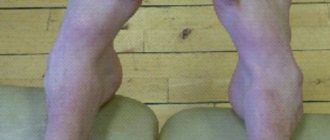Useful articles
Long-term depression is a form of the classic type of unipolar affective depressive disorder. It is characterized by a significant duration of the episode, according to accepted criteria - over 8 weeks.
Below we will consider protracted depression, symptoms and treatment of this disease, as well as its relationship with causative factors.
Symptoms
With depression, there is a pessimistic attitude, a negative attitude towards oneself and people. A person exhibits such character traits as passivity, inability to quickly respond to current circumstances and make the right decisions. Not everyone registers a decrease in emotional state; some perceive it as fatigue and worsening mood due to apparent reasons. List of objective symptoms:
- loss of feeling of satisfaction;
- nervousness and irritability;
- increased sensitivity to the actions of others;
- detachment of oneself from the outside world;
- depressed mood most of the day;
- sleep disturbance;
- fast fatiguability;
- deterioration of attention and memory;
- decreased mental activity;
- slowness or psychokinetic energy;
- low performance;
- suicidal thoughts;
- overwhelming feeling of guilt;
- weight loss or sudden weight gain.
Symptoms of prolonged depression can be various ways of putting pressure on the psyche in order to shift attention from internal problems through suffering: smoking, alcohol abuse, taking strong chemicals. The desire for solitude is another sign of a person suffering from oppression. But external manifestations do not always tell about the actual state. A person can carry out his duties at his usual rhythm for a long time, hiding the pain from others. “Loss of interest” is the main factor that can serve as an indicator of a dangerous condition and by which you can always check yourself. Sources of impressions must be within reach, or care must be taken to ensure their presence in life.
What is depression and why is it dangerous?
In everyday life, depression is understood as short-term drops in mood associated with the season of the year or general fatigue. But clinical depression is a complex mental illness that is caused by disorders of the central nervous system and human psyche.
Regardless of theories about the origin of this condition, its main signs are always the same:
- reduced self-esteem, negative opinion about one’s surroundings and the future;
- slow thinking;
- low mood;
- decreased physical activity;
- loss of interest in favorite activities, work and life.
Often the very first negative consequence of a depressed state is alcohol or drug abuse. These stimulants temporarily restore good mood and return a person to his usual standard of living. But they are addictive and require constant increasing dosages.
A patient with a latent form of depression gradually drinks alcohol or becomes a drug addict.
Depressive disorders also affect physical health. Due to a lack of serotonin, changes occur in the nervous system that cause disturbances in sleep, appetite, the appearance of phantom pains, etc. The danger of depression that occurs in severe illnesses is that the patient’s condition worsens: his responsibility for following doctor’s orders decreases. But even for a healthy person, a depressed state leads to general destruction of life: he may lose his job, conflict with loved ones, and move away from friends and acquaintances.
If depression is left untreated, its consequences can be serious.
Youth depression
Psychological immaturity and hormonal instability are associated factors of depressed mood in adolescents. In adolescence, it is easy to succumb to negative thoughts, dissatisfaction and irritability, and the culmination point is unjustified aggression.
The attention paid by relatives will help the child to quickly objectively assess failures and get out of a depressed mood, which is a consequence of a complex disorder under the influence of external and internal factors. A change of team, a hobby, a sports section are opportunities that will help you say goodbye to prolonged depression.
Varieties
The disease, collectively referred to as “depression,” has several different types. Currently, the following varieties are distinguished:
- Psychogenic. Characterized by slow but steady development in people with a weak personality type.
- Neurotic. The main factor in the development of this type of depression is constant stressful situations.
- Somatogenic. Occurs under the influence of severe chronic diseases.
- Postpartum. It develops after the birth of a child and in overly impressionable mothers, as well as in women deprived of moral support from loved ones.
Psychologist's advice
1. Find the true cause of your bad condition, show the courage to admit it to yourself. It is necessary to deal with the subconscious, hidden emotions that spoil the “healthy aschematic” perception, it mobilizes, frees you from panic, and allows you to look at circumstances from the position of new possibilities. 2. Take responsibility for your mood. Depression has a reason, and there are two main ways to eradicate the problem, which depend on its nature: fight for improvements - decide to change circumstances, move towards achieving a goal or agree with the situation, calm down, survive a temporary or forced state of affairs, start something again . Demanding people are more likely than others to experience depression. Expectations are the cause of our unhappiness. Therefore, the sure way to avoid stress is not to live with exorbitant aspirations, but to set realistic goals. 3. If routine is a consequence of prolonged depression, let your intention be to find a creative activity that you can work on with enthusiasm and enjoy the changes. It is recommended to devote time to creative work at least twice a week. 4. Start the day with a positive, because no matter how things go, there is not the slightest reason for sadness. Focus on events for which you are grateful. When you wake up, take a few minutes to mentally wish happiness to people you know, and this process will become an antidote formula and an active defense against depression for you. 5. Every morning, find a reason to please yourself and those around you and allow people to help you. 6. Find someone who cares about you, and this person will effectively and selflessly contribute to your healing. If such a person is a priest or a mentor in the field of personal development, capable of in-depth analysis of the symptoms of protracted depression, treatment will be most effective. 7. Remember that attention is the “steering wheel” and the “front door”; whatever you allow to penetrate you will be “yours.” After all, it is always easier to manage the state “at the entrance”, and this must be done consciously. Reject vanity, shift your focus from the past, regularly devote a few minutes to self-development, and a new page will appear in your life.
Depression: treatment or will go away on its own
This disease has many names. During the Holy Inquisition it was called possession by evil spirits, in the Renaissance - melancholy, in the 19th century - hypochondria, in the last 20th century - “an acute reaction to stress.” Modern doctors make a more accurate diagnosis and it sounds like this: “Depression.”
What kind of attack this is, how to recognize it and overcome it , Yuri Valentinovich Shevchuk, a doctor of the highest category from the Scandinavian Medical Center, tells.
— Yuri Valentinovich, in our difficult times, every person is subject to stress to one degree or another, and residents of the metropolis are more so than others. How to distinguish stress from depression? And is there any difference between these concepts at all?
Undoubtedly. Stress is a normal reaction of the body to unfavorable external circumstances. Agree, it is illogical to have fun if, for example, there is trouble in the family. Stress must be experienced, in a healthy person it will pass along with an unfavorable period of life, but some may develop depression, and this is already a disease - an affective state during which a person, for no apparent reason (!), experiences difficult, painful emotions and experiences (depression, melancholy, despair). Vital tone decreases sharply, thoughts about responsibility for unpleasant decisions or difficult events that have occurred in his life and the lives of his loved ones become characteristic.
Depression always needs treatment, even a mild degree, which, as many believe, “will go away on its own.” This is a disease and, unfortunately, it does not go away on its own - here you need the help of a specialist. A person with severe depression often needs hospitalization, since complex complex treatment must be carried out under the supervision of qualified personnel. Such treatment includes taking medications and a special diet (some foods may conflict with antidepressants and tranquilizers).
— It may seem that we all, especially in the spring, need to be treated...
You are wrong. People unfamiliar with psychiatry overuse the concept of “depression”, referring it to a bad mood, discomfort, a state of fatigue, overwork, or to the period of spring hypovitaminosis. But unlike a temporary drop in tone due to external circumstances, which is typical of healthy people, depression is a stable painful condition that continues even after the causes that gave rise to its development have been eliminated.
- So what are the reasons?
But everyone knows the reasons - chronic overwork, grief, love trauma, and in old age also infectious diseases, such as influenza. Plus excessive and uncontrolled consumption of alcohol, sedatives, that is, drugs that affect the central nervous system, and smoking.
- Where do the legs of this disease “grow” from?
Most often from childhood. Often, for “educational purposes,” parents scare their children with either “uncle policeman” or “gray wolf.” And thus, without realizing it, they cause enormous harm to the psyche of their own child. After all, susceptible kids take the threat at face value and the first childhood stresses begin, one of the indicators of which is enuresis.
In addition, what we see every day on television can provoke a depressive state - scenes of violence, thrillers, blood, and modern literature and information in the print media can sometimes be quite frightening.
— What dangers does depression pose?
Such a patient is not able to perform mental work. The feeling of guilt for past events and the feeling of helplessness in the face of life's difficulties that are inherent in this disease are combined with a feeling of futility. A person's self-esteem is sharply reduced. Time passes painfully long. A person becomes uninitiative, withdrawn, and quickly gets tired. The patient is deeply vulnerable and even minor reasons can provoke a deterioration in his condition. Unmotivated fears and anxieties appear. And in severe and prolonged depression, the patient begins to think about suicide.
— Can a person himself determine whether he is stressed or depressed?
Unfortunately no. Self-diagnosis is possible, but dangerous, since the person himself may underestimate the severity of the condition. If you feel like the blues are dragging on, try to help yourself. Avoid being alone, communicate with people as much as possible. Eat a balanced diet, exercise, indulge yourself - go to the cinema, take a walk in the park. And don’t try to “drown your sadness in wine” - this is a deceptive path: alcoholism is often disguised as depression. However, if you feel that these measures do not help, be sure to consult a specialist. You may not need serious treatment, but the doctor will guide you, teach you to control your actions and emotions and confront difficulties, understand your own feelings and separate the important from the unimportant. In some cases, he will prescribe medications to help cope with depression.
— Who is more susceptible to depression – women or men?
Statistics from American researchers on this problem show that women have twice the risk of becoming depressed than men. This is due to the characteristics of the female body as a whole, in particular in female hormones, which make the fair sex emotional.
— Tell me, is depression curable? Or can a course of treatment only “relieve suffering”?
Fortunately, yes.
But, I repeat, self-medication is dangerous, perhaps even more dangerous than inaction. Irina Sorokina
For positive change
What will change your life:
- new hobby;
- studying a foreign language, subject, devoting oneself to new knowledge;
- conversation with a psychotherapist;
- group rehabilitation (it is easier to overcome a problem together, in a group of understanding people, than alone);
- changing of the living place;
- factors of physical influence: baths with aromatic oils, massage, drinking mineral waters;
- movement: as a health activity and as a variety of impressions for the soul;
- caring for your favorite animal: caring for and stroking a cat or dog can improve your well-being in a short time;
- affirmations, appeal to the spiritual world.
Forms of depression
A mild form of depression can be eliminated by changing circumstances and using drugs sold without a prescription: “Normotim”, “Novopassit”. Depression of moderate severity is accompanied by a change in several episodes and normal mental state. There is an inability to perform daily activities properly. If you ignore the help of a psychotherapist and medication treatment, the disease can move into the next stage. The inability to cope with daily responsibilities is characterized as a complex form of the disease, advanced. The duration of such a condition for more than a year is characterized as a symptom of prolonged depression, and treatment in this case is prescribed by a doctor. It is acceptable to take medications for emotional balance before talking with a specialist.
What is major depression?
Major depression is an alternative name for severe depressive disorder. Formally, the term is not scientific, but nevertheless it very accurately describes the psycho-emotional state of a person: hopeless melancholy, anhedonia and physical weakness. Major depression is also called periods of exacerbation of a disorder of moderate severity. For example, in the off-season or as a result of premature cessation of antidepressants.
A psychiatrist diagnoses major depression. The diagnosis is made after collecting anamnesis and observing the client’s condition. To confirm the presence of the disorder, clinical symptoms must be present for at least two weeks.
Treatment
A doctor will help bring emotions back to normal and prevent recurrent mental disorder. In difficult cases, electroconvulsive therapy is used, especially when the patient's behavior is incompatible with his safety. The main treatment for prolonged depression with symptoms of complications is medication. Antidepressants, sedatives, and basic medications can be selected by a psychiatrist based on the individual condition of the patient. The duration of medication use is several months or years. If depression is associated with a disease of the internal organs (tachycardia, headache, gastrointestinal dysfunction, insomnia), therapy is prescribed aimed at healing them. As you know, a lack of serotonin and dopamine in the body causes a gloomy mood. These substances can be provided by administering medications, as well as by consuming products containing them. Directions of treatment:
- hypnotherapy;
- social therapy;
- classical psychotherapy;
- electroconvulsive therapy;
- drug treatment.
Consequences of depression
Most often, the problem lies in untimely treatment: if depression is not treated, it becomes chronic and leads to the development of complications. But a person in a state of disorder or after severe stress becomes so immersed in himself that it is difficult for him to independently determine the onset of the development of clinical symptoms.
Signs of the disease may be detected by loved ones, but they are put off by the unusual aggressiveness, irritability, or complete detachment and indifference of the suffering family member.
Social consequences
Changes in social life are associated with disturbances in the patient’s psychological state. With general depression, the patient develops the following behavioral and mental symptoms:
- problems in communication at home and at work (indifference or irritability, anger, desire to be alone, etc.);
- decreased sex drive;
- loss of ability to solve emerging problems: helplessness develops in difficult situations;
- predominance of negative emotions;
- the emergence of fears (phobias): communication, confined spaces, etc.
The listed social problems are accumulating and getting worse. The consequence is a reluctance to live and suicidal tendencies arising due to their negative impact on the quality of life.
Health effects of depression
With long-term depression, the consequences affect not only the emotional and social spheres of a person’s life. The primary consequences, which manifest themselves in the physiological sphere, affect the brain, autonomic nervous system, blood vessels and heart. With the development of severe depression, the entire body begins to suffer, since improper functioning of the nervous system provokes disorders in the endocrine and immune systems (for example, diabetes mellitus). In addition to this, other diseases become possible:
- The functioning of all organs depends on the condition of the endocrine glands and the correct entry into the blood of the hormones they secrete. When the activity of the pancreas and thyroid glands is impaired, a person’s condition sometimes becomes so severe that doctors have to save him from death. The release of large amounts of hormones into the blood is a common cause of high blood pressure, panic attacks, and the cardiovascular system also begins to suffer.
- Disturbances in the functioning of the immune system not only lead to the unhindered penetration of pathogens of various infections into the body. There are a number of diseases that are called autoimmune (systemic lupus erythematosus, rheumatism, etc.). During these processes, protective cells begin to destroy the tissues of their own body.
Even with a slight degree of damage to the nervous system due to depressive disorders, a sick person may experience the following conditions:
- insomnia;
- chronic fatigue;
- decreased ability to tolerate physical pain;
- deterioration of the condition of the skin, hair and nails, leading to loss of attractiveness.
Physical impairments lead to a decrease in living standards.
The situation is also dangerous because poor general health and social problems are fully realized by the person. He suffers from the loss of a normal way of life, from changes in appearance and at the same time from his own inability to change this condition. Against the background of new stress, the course of depressive disorder and its consequences become even more severe.
Drugs
Homeopathic remedies and tranquilizers:
- Tenoten is a homeopathic remedy that promotes nervous calm and is not addictive. The medicine helps improve concentration, memory, and performance.
- Mexiprim increases the level of dopamine in the body and helps eliminate the disorder.
- “Calm” is a homeopathic remedy that helps relieve anxiety, irritation, headaches, and restores natural sleep and appetite.
- "Phenazepam" eliminates states of irritability, tension, and fear.
- Zoloft is recommended for depression, various types of depressive obsessive-compulsive disorders, after trauma, and for phobias.
- "Etifoxine" - to eliminate anxiety, fear, internal stress (prolonged depression), persistent decline in mood due to somatic illnesses, mild depression.
- "Deprim" is indicated for psychovegetative disorders, menopausal syndrome, PMS, depression, fear, anxiety.
- “Afobazole” relieves irritability when giving up alcohol and nicotine, and is effective for neurasthenia and chronic somatic diseases.
Prevention
There is no generally accepted prevention for depression. However, there are a number of recommendations, following which you can significantly reduce the risk of its development:
- Avoiding stressful situations.
- Normalization of the daily routine.
- Rejection of bad habits.
- Rational and balanced nutrition.
- Regular exercise and training.
- Doing what you love (searching for a new interesting job or hobby).
Folk remedies
- Borage (borage) is the best plant for depression, “a joyful heart,” according to old healers. Pour boiling water (200 ml) over a spoonful of herbs for a couple of hours. Drink 100 ml 3 times a day before meals.
- Knotweed - pour 3 tablespoons of raw material with boiling water (200 ml) for 1 hour: 2 tablespoons 3 times a day for nervous exhaustion.
- Peppermint: brew 1 spoon of leaves with boiling water (200 ml), leave for 1 hour: 100 ml in the morning and evening.
Decoctions of nettle, adonis, hops, and valerian are also useful.
Products
Echinacea, green tea, kombucha, ginseng, schizandra will help you recover from intense nervous and mental work. Spinach, lettuce, cabbage, paprika are vegetables rich in cytokine and opiate, mood-enhancing substances. Bananas - thanks to serotonin, give a state of happiness and lightness. Chocolate contains endorphins, which are stimulating and bring positive emotions. Fatty fish, chicken, pork, beans, peas, fortified cereals, whole grains are sources of vitamin B3, necessary for the production of tryptophan and maintaining the body during critical periods.
Depression in women
The following mental disorders are possible in the lives of women:
- agitated: concern about social status, associated with self-criticism;
- pathological: associated with the loss of a relative;
- narcotic: occurs with the use of psychotropic substances;
- Iatrogenic: develops from uncontrolled use of medications;
- somatic: caused by sclerosis, epilepsy, thyroid dysfunction, hydrocephalus;
- postpartum - pregnancy depression.
The menstrual cycle, pregnancy, childbirth, menopause - these types of ailments are accompanied by hormonal changes and many physiological reactions that affect the psyche. Exhaustion of the nervous system that occurs in the first six months after childbirth is called prolonged postpartum depression. This disease goes away on its own, but in some cases it may require the intervention of specialists. Postpartum depression affects about 40% of women of all ages. This is due to a decrease in hormones, as well as the addition of new responsibilities; complemented by unsuccessful childbirth, financial problems and other stressful situations: lack of a life partner, severe disappointments.
Causes and provoking factors
Currently, the causes of depression include a complex of factors divided into 3 groups:
- Social. Stressful situations (quarrels, divorce, loss of a loved one), changes in living conditions (moving to another city, retirement), unstable financial situation.
- Psychological. Excessive impressionability, a tendency to focus on certain experiences, negative thinking.
- Biological. Decreased immunity, hormonal disorders and changes (pregnancy, postpartum period, menopause, thyrotoxicosis, hypothyroidism), severe chronic pathology.
Depression in men
Possible symptoms of prolonged depression in men:
- addiction to gambling;
- drinking alcohol;
- personal problems;
- inability to control emotions, aggression;
- inability to solve one's own problems.
Men try to live up to the image of strength, so they do not seek psychological help, pushing the problem deeper. The specialist is not prone to prejudice, his task is to help anyone who comes to see the optimal way out of protracted depression. Most likely, everyone knows how to get out of a prolonged depression on their own, but during a critical period the guess about this “smolders” somewhere in the depths of the soul, and it is very difficult to control attention, switching it to really useful things. At such moments, one smile or just two words, such as “I need you,” may be missing to make a person feel better. Negative emotions are easy to manage at the very beginning, but constant self-development and movement towards a big goal can truly strengthen their position in life; such people are never disappointed.
Prolonged depression, how to help the body
To get out of long-term depression as quickly as possible, a person definitely needs to reconsider his daily routine, regulate his sleep and wakefulness. If he has low blood pressure, then he needs to sleep a little longer.
He should also:
- eat right, eliminate endless snacks, include healthy dishes, vegetables, fruits in the menu;
- use decoctions and infusions of medicinal herbs, inhalations, rinses;
- exercise daily, do morning exercises;
- do yoga, spin a hula hoop, use a jump rope - this will make your figure fit and allow you to get rid of excess weight;
- take care of yourself, pick up new cosmetics, change your hairstyle, create a bright, charismatic image that gives confidence.
Even a person weakened by depression can do this. There is no need to immediately “take the bull by the horns”, it is better to change gradually, measure the load.
In addition, you must take into account the advice and recommendations of psychologists:
- go outside more often - walking in the fresh air is generally good for health, and if you are depressed, it also allows you to take your mind off problems and meet with friends;
- reduce aimless time to a minimum - choose an interesting hobby, attend psychological trainings, engage in self-development;
- do not feel sorry for yourself and your inadequacy, because everything can be corrected.
There is no need to aggravate the situation with unnecessary worries.
Many people have had turning points in their lives, from which they emerged victorious. A person's life can be very interesting, you just need to put in a little effort.











